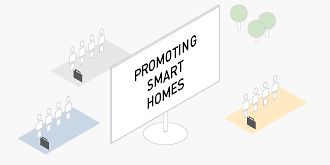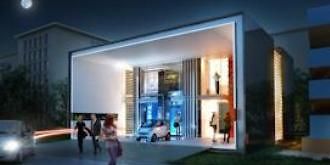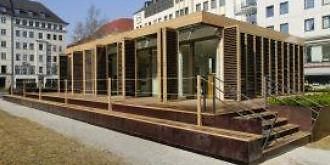- Smart Home Program supported by the Federal Ministry of Economic Affairs and Energy -
Connected Living brings together a network of research and industry partners with a shared goal of innovative cross-industry solutions for intelligent home networking. Connected Living builds on increased smart device convergence to combine multiple home device functionality into a single, unified home connected living solution.
The results of the BMWK-funded SerCho ("Service Centric Home") project form the technological basis for the Connected Living innovation center. SerCHo represents a holistic solution, consisting of a "Home Service Platform," a "Service Provider Platform" and an "Ambient Service Framework". Services include communication, maintenance, information, domestic appliance control, security, and healthcare services. The Home Service Platform integrates all devices in the home environment for improved quality of life.


